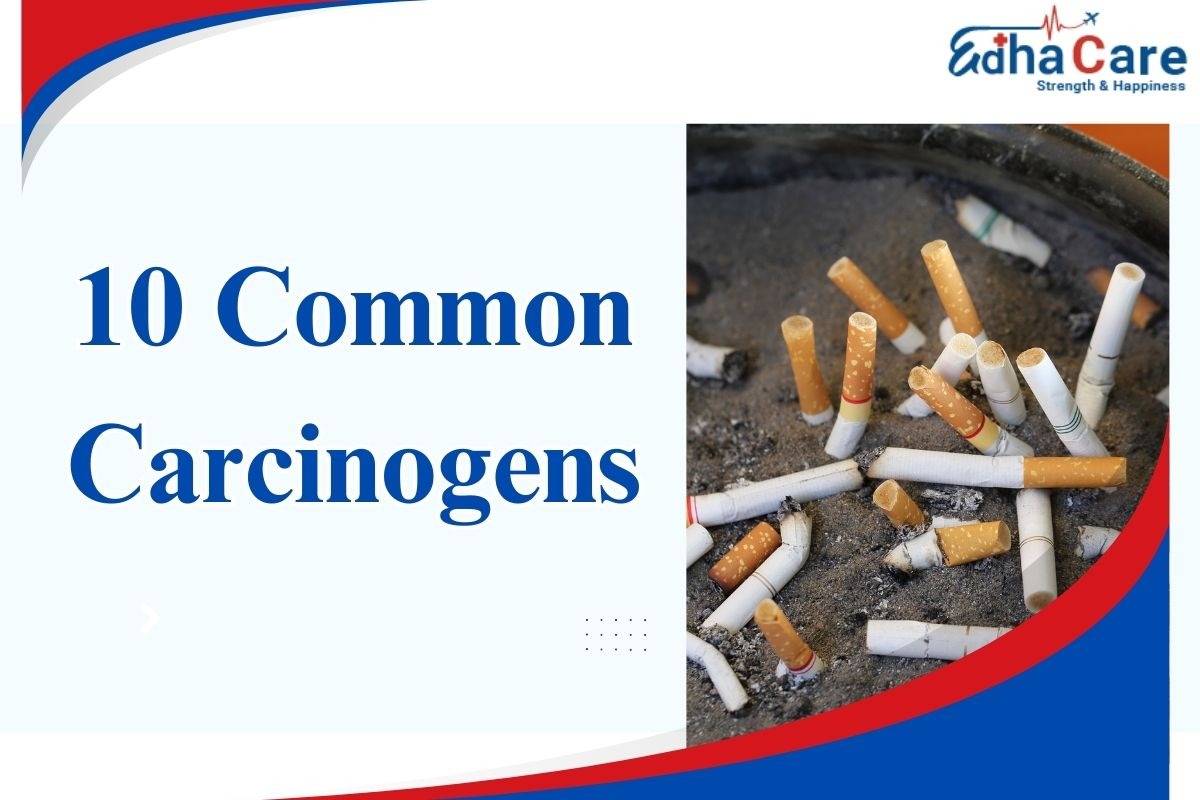Cancer is one of the leading causes of death worldwide, and many cases are linked to exposure to carcinogens—substances capable of causing cancer in living tissue. Understanding these harmful agents is crucial for prevention. From chemicals in tobacco smoke to pollutants in the environment, identifying and avoiding these common carcinogens can significantly reduce cancer risks.
Let’s explore the top 10 carcinogens known to cause cancer and learn where they’re commonly found.
1. Tobacco Smoke
Tobacco smoke contains over 70 known carcinogenic chemicals, including benzene, formaldehyde, and nitrosamines. Smoking is the primary cause of lung, throat, and bladder cancer, and even secondhand smoke poses serious health risks.
Avoidance Tip: Quit smoking and avoid exposure to smokers to dramatically lower your cancer risk.
2. Asbestos
Once widely used in construction and insulation, asbestos fibers can cause severe respiratory issues when inhaled. Prolonged exposure leads to mesothelioma, lung cancer, and asbestosis.
Avoidance Tip: Hire professionals for asbestos removal and avoid disturbing old building materials.
3. Ultraviolet (UV) Radiation
Overexposure to sunlight or tanning beds causes skin damage and increases the risk of melanoma and other skin cancers.
Avoidance Tip: Use sunscreen, wear protective clothing, and limit direct sun exposure, especially between 10 a.m. and 4 p.m.
4. Benzene
Benzene, found in industrial emissions, cigarette smoke, and gasoline, is a known cause of leukemia and bone marrow disorders.
Avoidance Tip: Limit exposure to gasoline fumes and avoid smoking to reduce benzene intake.
5. Air Pollution
Air pollution—especially fine particulate matter (PM2.5)—is now recognized by the WHO as a Group 1 carcinogen. It contributes to lung cancer, heart disease, and chronic respiratory problems.
Avoidance Tip: Wear protective masks in polluted areas and use air purifiers indoors.
6. Formaldehyde
Used in building materials, furniture, and some cosmetics, formaldehyde can irritate the respiratory system and has been linked to nasopharyngeal cancer.
Avoidance Tip: Use low-emission products and ensure proper ventilation at home or work.
7. Processed Meats
The World Health Organization (WHO) classifies processed meats such as bacon, sausages, and ham as Group 1 carcinogens, linked to colorectal and stomach cancers.
Avoidance Tip: Limit consumption of processed meats and replace them with fresh protein sources like fish, lentils, or chicken.
8. Alcohol
Alcohol is associated with several types of cancer, including breast, liver, mouth, and esophageal cancer. When metabolized, alcohol produces acetaldehyde, a toxic compound that damages DNA.
Avoidance Tip: Reduce alcohol consumption or switch to non-alcoholic beverages.
9. Arsenic
Commonly found in contaminated groundwater and some pesticides, arsenic exposure increases the risk of skin, lung, and bladder cancers.
Avoidance Tip: Drink filtered or tested water and avoid using contaminated sources.
10. Diesel Exhaust
Diesel engine emissions contain numerous harmful chemicals, including polycyclic aromatic hydrocarbons (PAHs), known to cause lung cancer.
Avoidance Tip: Reduce exposure to diesel fumes and support the use of clean, renewable energy alternatives.
Prevention: How to Protect Yourself from Carcinogens
- Eat a balanced diet rich in antioxidants
- Avoid smoking and limit alcohol
- Exercise regularly to boost immunity
- Use eco-friendly cleaning and cosmetic products
- Schedule regular health checkups and cancer screenings
Conclusion
Awareness is the first step toward prevention. By recognizing and avoiding these common carcinogens, individuals can take control of their health and drastically lower their chances of developing cancer.
At EdhaCare, we’re committed to spreading awareness and connecting patients with the best cancer treatment hospitals in India, offering advanced care, expert oncologists, and hope for recovery.





Comments